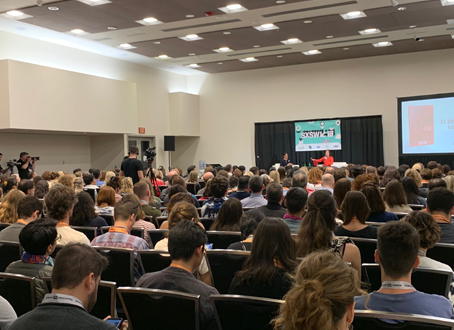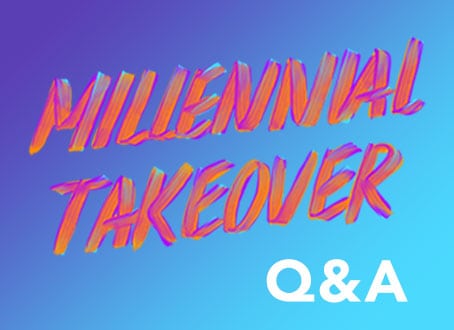This post was written by J.D. Brady on behalf of the Case Foundation:
The Millennial Generation is tech savvy, entrepreneurial and eager to make a positive impact in the world—just like the team at the Knight Foundation. The Knight Foundation works to revolutionize philanthropy each day as they support of quality journalism, engage local communities and ignite media innovation. They believe that democracy thrives when people and communities are informed and engaged. This month the foundation released a study focused on Millennial voters and found three-quarters of Millennials cited the biggest obstacle to local voting was a lack of information.
Carol Coletta, Vice President of Community and National Initiatives at the Knight Foundation, understands the importance of informed communities and increasing Millennials engagement. An expert on the development of cities, Carol shared with the Case Foundation her insights on leadership, trends shaping cities and challenges civic leaders face today. We are truly excited to learn even more from Carol during her talk at MCON 2015.
CF: The organization has embarked on several “city learning tours” that expose leaders from Knight to communities. What have you learned from these tours and the cities themselves?
CC: First, leadership in communities can come from unexpected places. There is no longer a leadership formula that is title-bound. You don’t have to have a certain title, including CEO, to shape your city’s future. Leadership is all about who can muster followers. Second, leaders with new ideas shouldn’t fly solo. It’s hard to get anything done. Therefore, we take groups of leaders from a single city on these trips so that they learn together and can reinforce each other when they go home. Typically, too, these leaders are not from a single organization. We like to mix it up with representation across sectors. Leaders from various cities are eager to learn from one another. People get new ideas from their peers in other cities, and then they form their own exchanges.
CF: How can cities increase civic engagement with Millennials in their communities?
CC: Accepting that Millennials are generally not going to engage on institutional terms is key. They aren’t going to show up every Wednesday to pledge allegiance and hear a speaker. So we have to accept that Millennials will reinvent civic engagement on their terms. It will be more informal and more episodic with more immediate and tangible results. We need to do all we can to make it easy for them to engage, including reviewing a lot of out-of-date rules and ways that discourage the kind of action they want to put their energies behind. On the other hand, we need to keep pushing them to turn their episodic efforts into transformational change and not ignore the hard work of governing.
CF: How do you see Millennials engaging in the philanthropic and community development space?
CC: One of the most encouraging trends I see is the move by Millennials back to cities — specifically to the heart of the city. And when they get there, they aren’t content to leave things as they are. They are taking over the streets with bike advocacy and parklets, starting charter schools, fixing up old building, hacking government data, opening small businesses, reinventing gathering spaces. You see it everywhere. For a lot of millennials, philanthropy and community development have mashed up into one thing.
This is the third post in a series of blogs featuring speakers from MCON 2015. Check back to learn about more innovators and leaders from the private, nonprofit and public sectors. Also, be sure to tune in to the livestream of MCON on June 24th and 25.





